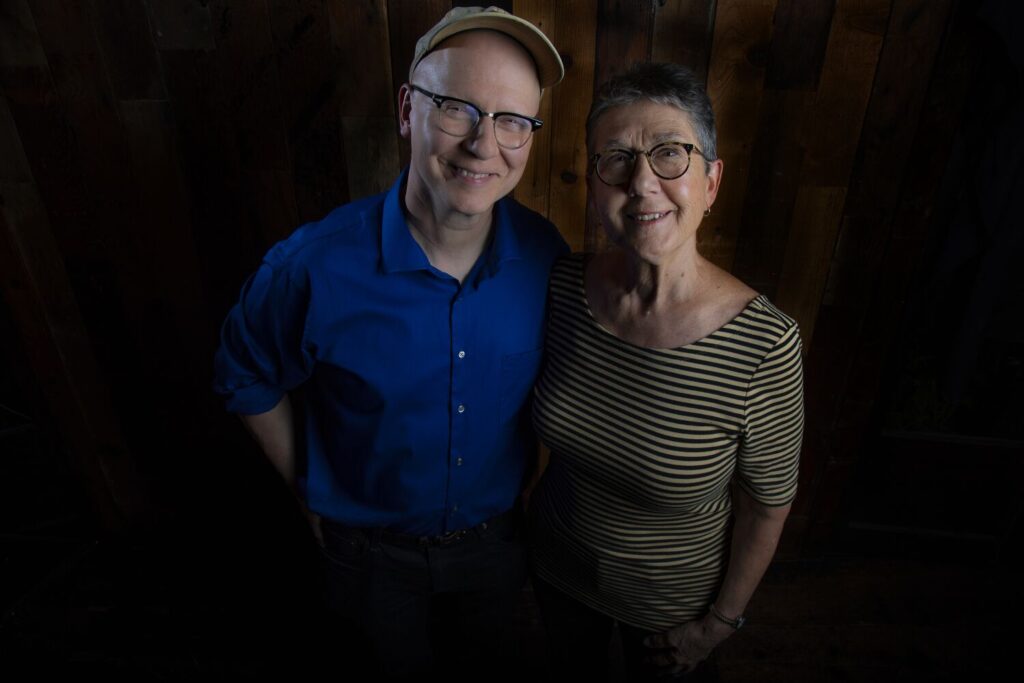Julia Reichert, the Oscar-winning documentary filmmaker behind “American Factory” whose films explored themes of race, class and gender, has died at 76.
Reichert died Thursday night in Ohio from cancer, her family said. She had been diagnosed with Stage 4 urothelial cancer in 2018.
Often called the “godmother of American independent documentaries,” Reichart told the stories of ordinary Americans, from autoworkers dealing with both plant closures (2009’s “The Last Truck: Closing of a GM Plant”) and foreign investors (2019’s “American Factory”), to members of the American Communist Party (1983’s “Seeing Red”) to female labor activists in the 1930s (1976’s “Union Maids”).
In her 50 years of filmmaking, Reichert won two Primetime Emmy Awards and was nominated for four Oscars, winning one with her husband Steven Bognar for “American Factory” in 2020. She quoted “The Communist Manifesto” in her speech, saying “things will get better when workers of the world unite.”
She was also nominated for two Peabody Awards.
Veteran film producer Ira Deutchman wrote on Twitter that she was one of “the kindest, most generous people I’ve ever had the pleasure to work with.”
“Her spirit was so indominable that somehow I thought she would eventually triumph over her illness,” he added.
Born in 1946 in Princeton, N.J., and raised in Bordentown and Long Beach Island with her three brothers, Reichert started finding her voice as a filmmaker at Antioch College in Ohio, beginning her long residency in the state.
Her first film, “Growing Up Female,” was a 49-minute student film made for $2,000 with then-partner Jim Klein that looked at the lives of six women, ages 4 through 35, and their socialization.
When they couldn’t find a distributor, they founded their own company, New Day Films, which is still active. In 2011, “Growing Up Female” was added to the Library of Congress’s National Film Registry and is considered the first feature documentary of the modern women’s liberation movement.
“I came of age in the ’60s. Millions of us saw racism, saw U.S. domination around the world. Imperialism. Saw huge inequalities class wise. We said the system’s not working and we became, in some broad sense, revolutionaries,” Reichert told the radio station WYSO last year. “Not that we wanted to attack the White House but we really wanted to change society.”
She and Bognar worked for eight years to make the 225-minute-long, Primetime Emmy Award-winning “A Lion in the House,” which looked at five families dealing with childhood cancer in Ohio.
“American Factory” put Reichert and Bognar in a different kind of spotlight when Barack and Michelle Obama took interest in their film about an Ohio auto glass factory that had been purchased by a Chinese investor. It became the first project the Obamas backed with their production company Higher Ground.
“One of the many things I love about this film … is that you let people tell their own story,” the former first lady said in 2019. “‘American Factory’ doesn’t come in with a perspective. It’s not an editorial. I mean, you truly let people speak for themselves, and that is a powerful thing that you don’t always see happen.”
More recently Reichert and Bognar directed “9to5: The Story of a Movement,” about an organization that is trying to improve working conditions and maintain rights for women and families, and “Dave Chappelle: Live in Real Life,” following the comedian’s Ohio shows in 2020 during the pandemic.
Throughout her career, Reichert made sure to pass on her wisdom to others, teaching film at Wright State University in Dayton, Ohio, and writing a book about self-distribution called “Doing It Yourself.”
Reichert was diagnosed with Stage 4 non-Hodgkin lymphoma in 2006 while preparing to go to Sundance with “A Lion in the House.” The cancer went into remission later that year.
The urothelial cancer, she knew, was incurable. In 2020, she told NPR’s Terry Gross that now that she was coming to the end of her life, she was focusing on things she hadn’t been able to do enough while making films, mostly spending time with her daughter and grandchildren.
Reichert is survived by her husband, her daughter Lela Klein Holt and two grandchildren.

